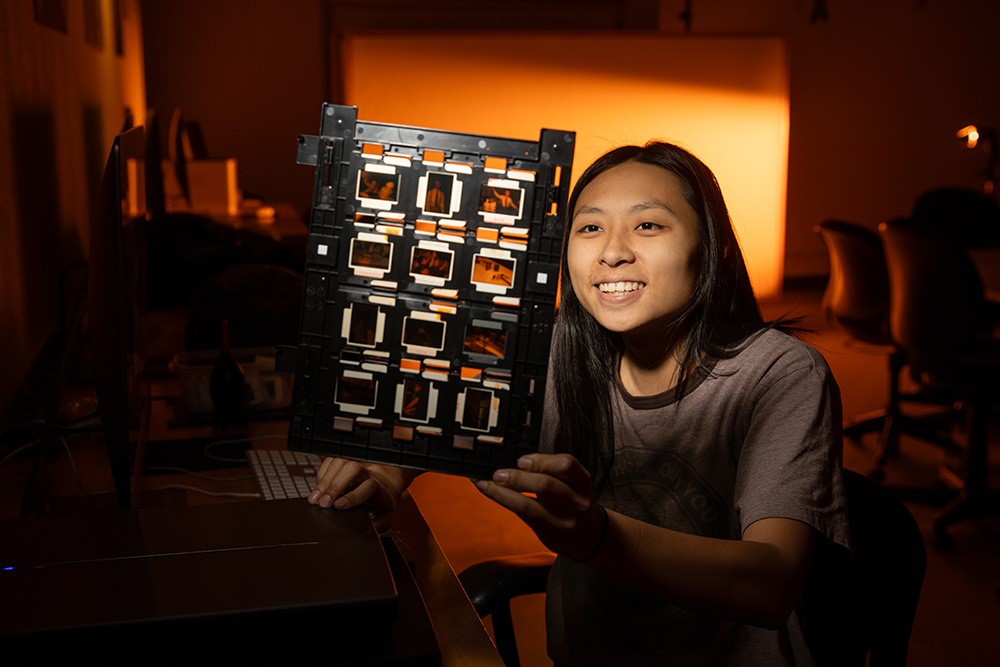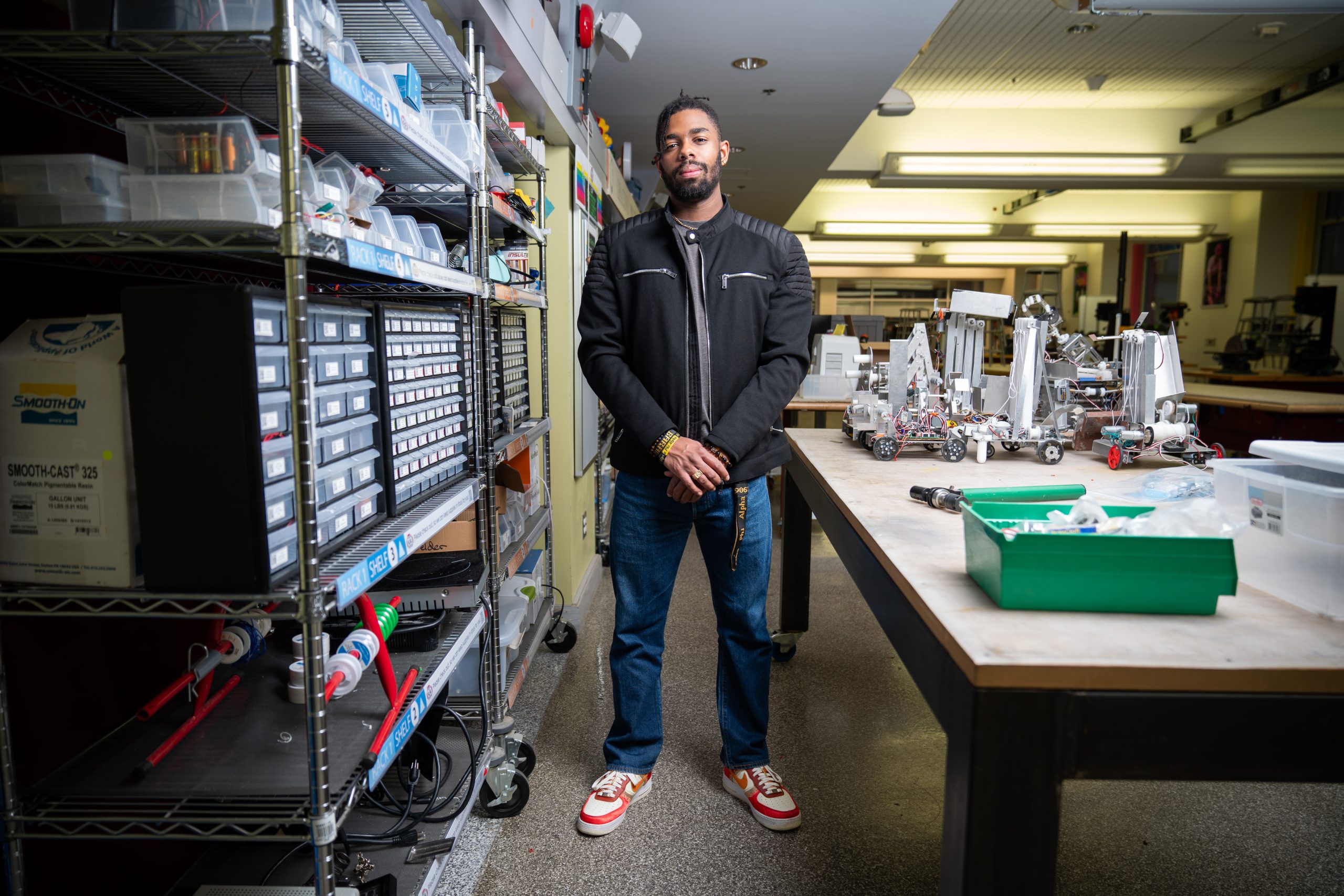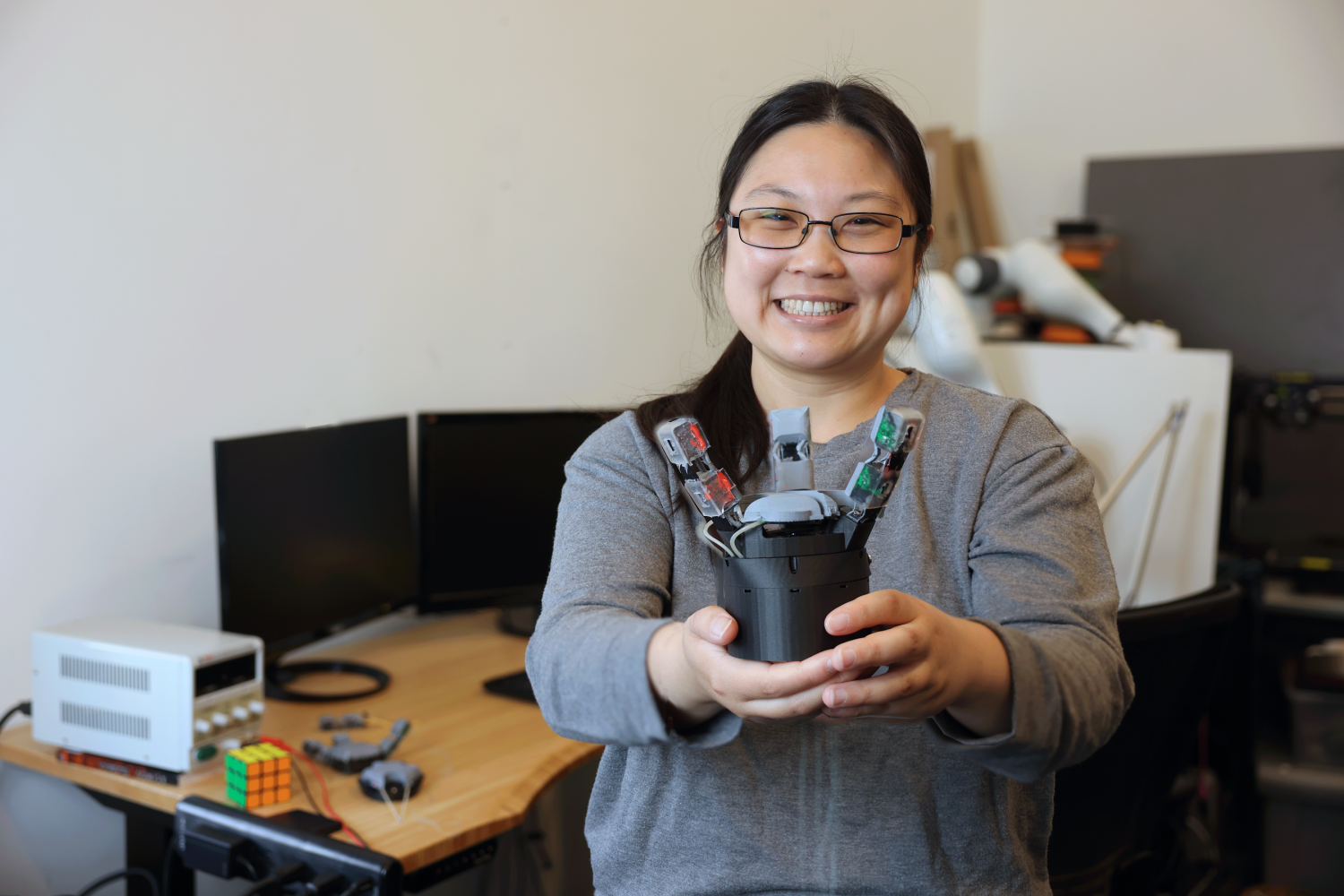Audrey Chen, a talented MIT student graduating in 2024, lives by the mantra that “many opportunities only reveal themselves if you ask.” This philosophy has propelled her diverse and impressive journey—from landing a NASA internship at just 15 to leading MIT’s autonomous boat initiative, Arcturus, and securing a project manager role at Formlabs right after her undergraduate studies.
Raised in Los Angeles, Chen displayed a remarkable passion for engineering early on, even skipping multiple grades in math. As a high school freshman, she discovered the JPL Space Academy program at NASA’s Jet Propulsion Lab, which was aimed at upperclassmen. Undeterred, she reached out to request an exception, and by her junior year, she was serving as the program’s deputy.
Driven by her aspirations, Chen approached her mentor about internship opportunities and soon began her role as a drone air traffic control researcher at NASA—still too young to drive. “After school, I would rush to JPL, much to the surprise of the security guard at the gate,” she recalls.
While at NASA, Chen contributed to the Orbiting Arid Subsurfaces and Ice Sheet Sounder (OASIS) project, which focused on discovering and studying freshwater aquifers and ice sheets. “During the early stages of the project, I was involved in defining the system and objectives,” she explains.
Embarking on her MIT Journey
Upon high school graduation, Chen journeyed cross-country to MIT, where she embraced her varied interests. Between fulfilling her mechanical engineering course requirements, she explored leather crafting, glass blowing, and table welding in the campus makerspaces, while also documenting student life through her photography—earning her the nickname “The Eyes of MIT.” Furthermore, she engaged in research on deep-sea sediment and took the helm of the award-winning Arcturus team.
“Leading Arcturus has been the highlight of my MIT experience,” Chen states. She founded the team at MIT Sea Grant in 2022, rallying a passionate group of peers who elected her as their captain.
“With no prior background in marine autonomy, we worked diligently to implement training sessions and workshops, making sure everyone felt empowered to contribute,” she recalls. Seeking further assistance and funding, the team established a partnership with the MIT Edgerton Center.
Building Arcturus
Chen describes the survival of Arcturus as miraculous. “In our inaugural year at the Roboboat competition, just five of us were involved. If even one of us hadn’t joined, we would have lacked crucial components like a boat, electronics, coding, or funding.”
As the team leader during her first year, Chen managed an overwhelming amount of tasks, balancing the roles of team leader, business coordinator, treasurer, media manager, and photographer. “Initially, the workload was immense, but we’ve since distributed those roles among more individuals on the team,” she notes.
Recruiting new team members presented challenges, as many students lacked experience in marine robotics. To broaden the recruitment pool, Chen emphasized inclusivity, welcoming students from diverse majors and backgrounds. “Creating a supportive and friendly environment for learning is vital; otherwise, you risk losing your team. We are determined to draw on a broad spectrum of talent and actively recruit individuals of all genders and ethnicities,” she emphasizes.
Thanks to Chen’s effective recruitment strategies, Arcturus grew from just five members to an impressive 74 by 2024, ultimately achieving First Place Design Overall at the 2023 Roboboat competition.
Addressing Autonomous Boat Challenges
Chen’s fascination with autonomous boats is rooted in the field’s vast potential. “An autonomous vehicle on land remains stationary when powered off, but in water, it continues to move with the current. This necessitates constant environmental input and localization,” she explains.
Chen sees immense potential within the marine biotics field to collect critical environmental data. “Compared to land autonomy, marine autonomy is still underexplored. There’s a wealth of opportunities for marine robots to contribute, whether that’s mapping ocean topography, identifying endangered species, or surveying coral reef health. The mobility of a vehicle compared to a buoy allows for more extensive sampling, reducing research costs and broadening our scientific capabilities,” she adds.
Having graduated early in February, Chen handed over the leadership of Arcturus to rising juniors Ami Shi and Karen Guo. “They’re remarkable, and I know the team is in excellent hands,” she remarks.
Stepping into Formlabs
As she graduated a semester early, Chen accepted a project manager role at Formlabs, where she applies invaluable lessons learned during her time at MIT. “One of the most important realizations I’ve had is that I don’t need to know everything. Success is about understanding what I don’t know. In every Arcturus and technical meeting at Formlabs, I’m well aware that I won’t be the sharpest mind in the room—and that’s perfectly fine. My role is to integrate the projects and have a comprehensive understanding of all systems involved.”
Excited to remain in proximity to MIT, Chen looks forward to visiting friends and continuing her mentorship with Arcturus. Upon announcing her position, she humorously remarked, “To my friends at MIT, I’ll be just down the street, so you won’t be able to get rid of me that easily!”
Photo credit & article inspired by: Massachusetts Institute of Technology



